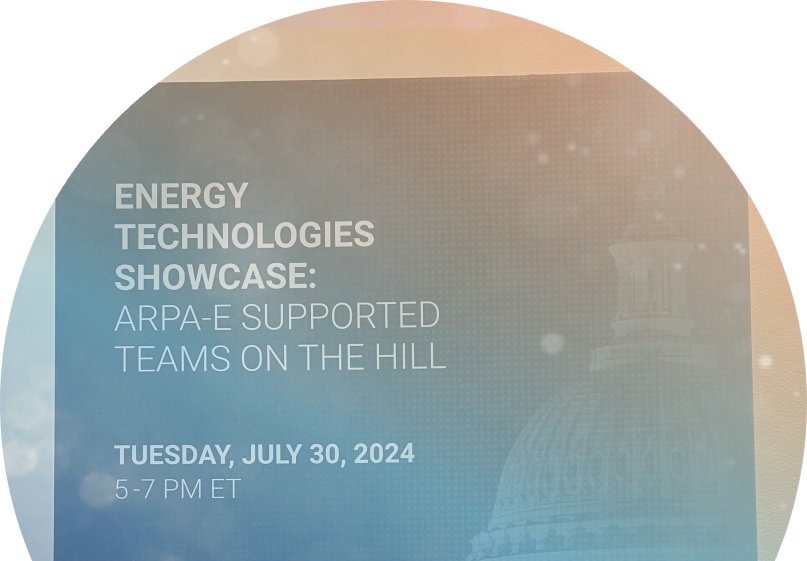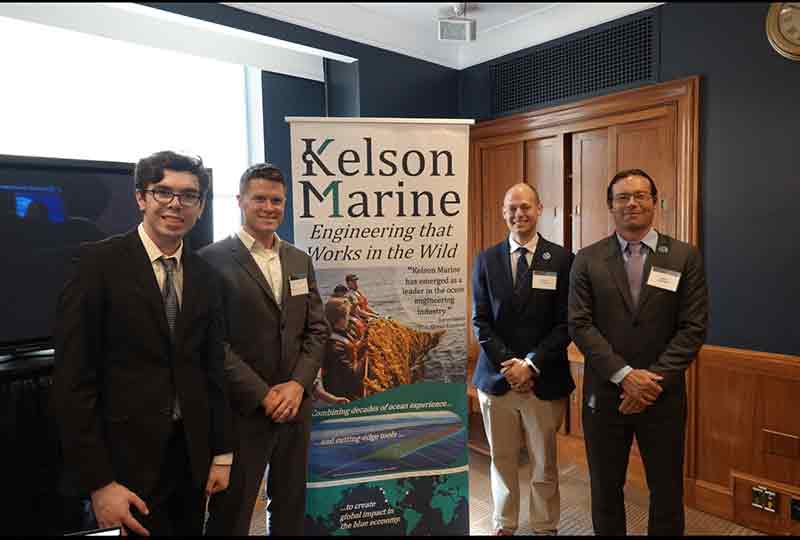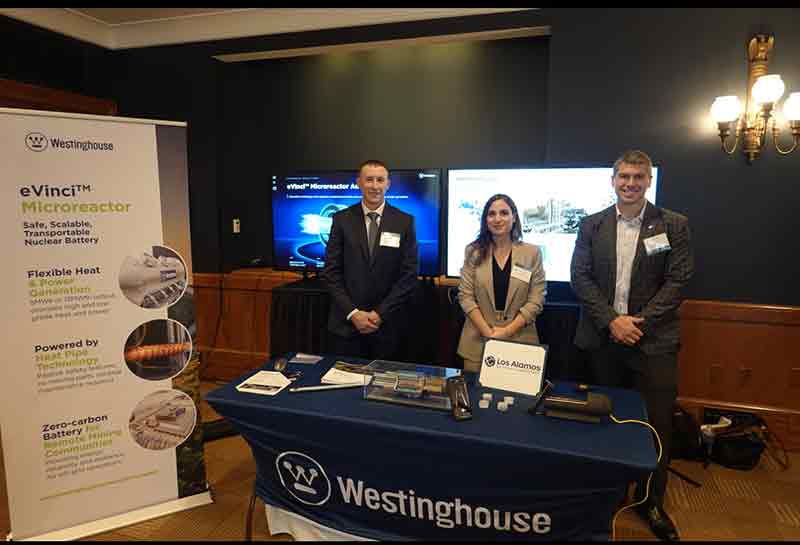Washington, D.C. — July 30, 2024 — Anthropocene’s Hilda Palencia attended the ARPA-E Technology Showcase, hosted at Capitol Hill’s Senate Office Building, to learn more about the cutting-edge energy projects ARPA-E is funding. Director of ARPA-E Dr. Evelyn Wang delivered an introduction to the event and thanked Anthropocene and the other sponsors.
ARPA-E-funded projects showcased at the event included:
- Centrifugal Mirror Fusion Experiment, University of Maryland. The University will advance the performance of the centrifugal-mirror (CM) fusion concept, which has previously demonstrated stable plasmas with temperatures above 100 eV. The CM has a simple, axisymmetric geometry and provides a potential low-cost pathway to a breakeven experiment.
- Self-regulating, Solid Core Block for an Inherently Safe Heat Pipe Reactor, Westinghouse Electric Company. Westinghouse Electric Company will develop a self-regulating "solid core block" (SCB) that employs solid material (instead of bulk liquid flow or moving parts) to passively regulate the reaction rate in a micro-scale nuclear reactor. The project aims for the reactor to achieve safe shutdown without the need for additional controls, external power sources, or operator intervention, enabling highly autonomous operation.
- Pilot Production for Commercial Sampling of Rare-Earth-Free Iron Nitride Permanent Magnets, Niron Magnetics. The reliability of the rare earth magnet supply chain is critical for the United States’ transition to a clean energy economy. Niron’s Clean Earth Magnets® (“CE Magnets”), based on the iron nitride compound, are powerful permanent magnets free of critical minerals and made of abundant commodity inputs. Niron will achieve pilot-scale proof of concept by demonstrating a manufacturing capacity of thousands of kilograms of permanent magnets per year.
- A Rapid In-Field System to Measure Deep Soil C Stock, Soil Health Institute. The Soil Health Institute aims to develop an integrated, affordable, and user-friendly soil carbon measurement and monitoring system—the DeepC System. The system will be designed to meet the current and future needs of farmers, landowners, and agricultural carbon markets nationwide. The system’s three main components are in-field measurement hardware, an optimized spatial sampling algorithm to select measurement sites, and machine learning calibrations that leverage the current infrastructure of national soil spectroscopy libraries.
- Enhanced Hydrogen Production: An Empirically Validated Modelling Approach, Koloma Labs. Koloma Labs is developing geochemical and microbial models to understand the processes that form hydrogen in novel rock systems. A combination of geochemical, geo-mechanical, and fluid transport models paired with an investigation of naturally occurring microbiology in hydrogen reservoirs seeks to reveal the feasibility of the widespread stimulation of geologic hydrogen in different rock systems.
We applaud these innovators in their efforts to further all types of clean energy and advance the necessary supply chains!






